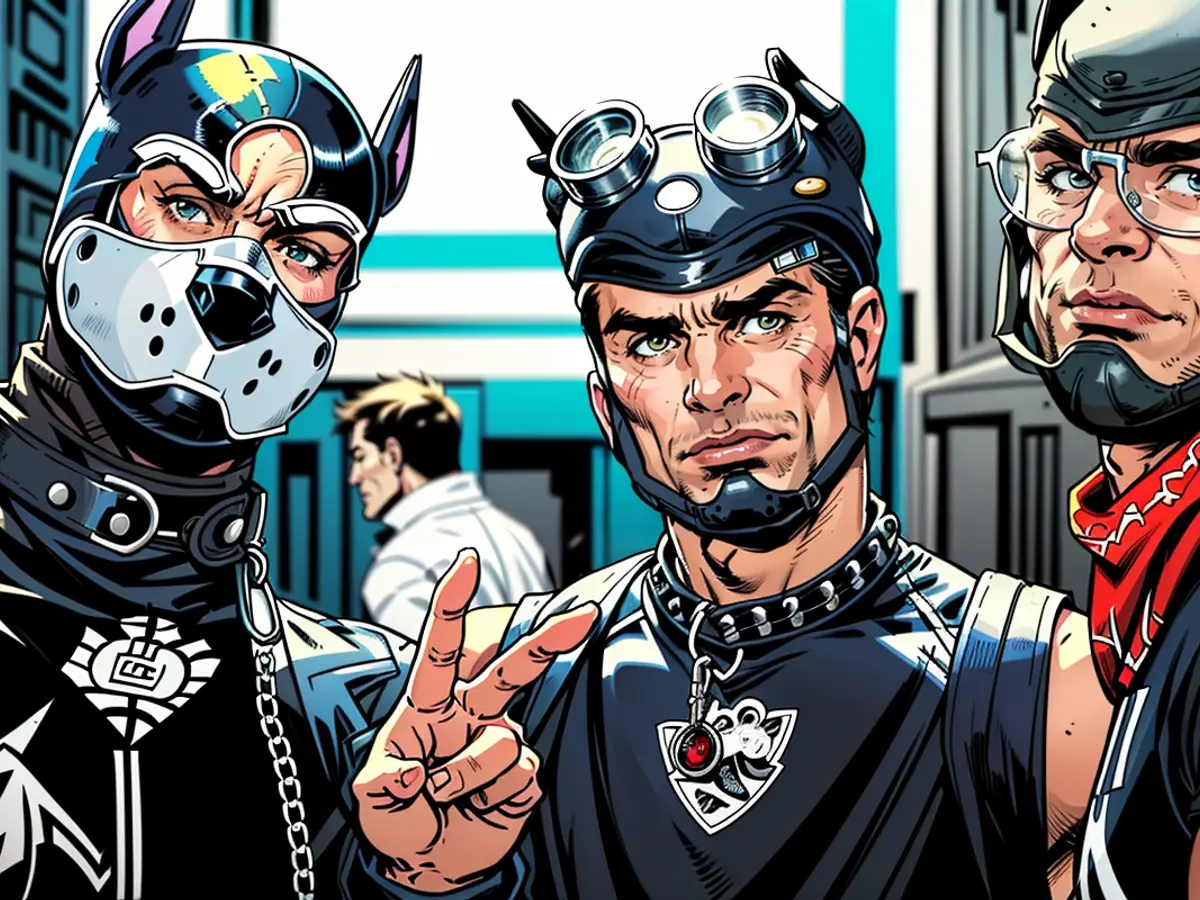Society - On the dog: the "Pup Play" phenomenon
Your Hobby? Dog playing. So-called Pups (or Pupys) - named after the English "pup"/"puppy" for puppy - know that many are excited about it. Some show themselves even enthusiastically, isn't that perverse. Once again, this summer, many younger men with leather or neoprene dog masks were seen at Christopher Street Days. What's the deal with it? Time for an approach to a phenomenon that has also called the police and politics into play.
Pup Play is a role-play. In the last few years, it has become a more visible phenomenon - on social networks and at queer parades and festivals. Human Pup Play, however, usually comes in a desexualized form these days and vies for recognition and inclusion in the queer scene and society.
Dog playing as a hobby
"When it comes to the hobby of Pup Play, it's about immersing yourself in the role of a dog and imitating its behavior," says ethnologist Konstantin Mack, who wrote his Master's thesis on the topic at the University of Würzburg ("The Dog Must Be One - Cultural Anthropological Perspectives on Pup Play"). "Plain and simple: It's adults who enjoy spending their free time chasing a ball on all fours."
Characteristic for many Pup Players are masks, collars, leather, which are supposed to facilitate the entry into the dog role. A charm lies in designing one's own dog character - with individual personality and matching accessories. "In Germany, the first associations were founded around six years ago, and since then, the scene has been growing steadily," says Mack, who is now a doctoral candidate at the Institute for European Ethnology of the University of Vienna.
"A almost meditative state"
Central to Pup Play is the so-called Headspace, explains Mack. "With that, Puppies describe their feeling when they completely immerse themselves in their role. For many, it's a almost meditative state, because their thinking and acting are focused only on what puppies like to do." This includes playing, chasing balls, growling, letting themselves be scratched, barking or meowing. Everyday worries are pushed aside during the game.
The German community is estimated by Mack to number in the high four-figure range, and with Austria, it is "certainly" in the five-figure range. In most medium-sized and large cities in the German-speaking area, there are regular meetings, although, according to experience, only a small fraction of the practicing people participate. Many practice this hobby simply for themselves or primarily online.
History
Historically, Pup Play, as Mack explains, goes back to the 1940s and 1950s, when the leather scene developed in the queer community in America. Back then, role-plays between (human) dog and the "Handler" named handler often involved sadomasochistic sex.
Over the decades, the focus of this shifted, so the playful joy of immersing oneself in the behavior of a puppy became increasingly significant," says Mack. To this day, most Puppies have been gay. This can be explained historically with the connection to the leather, lacquer, and latex scene. However, fundamentally, Pup Play is not bound by gender or sexual orientation. Puppies could be male, female, non-binary, gay, lesbian, bi, hetero, or even asexual.
How sexually connoted is Pup Play?
Does this still have much to do with sex today? Mack says: "The pure role-play, or activities with other Puppies, is for the majority a purely social act - a hobby, like theater acting or swimming. Reducing Pup Play to sexual acts does not do justice to the complexity of the scene, as the social aspect and the shared play are in the foreground. It's about living out one's life, discovering new things, questioning social norms, and getting to know like-minded people." This is what surprises an earlier Dogplayer. "I find it strange that it's being sold so brazenly today," says Thomas (44) from Berlin (Dog name: Gary). "The dog play has become a kind of club affair - with uniform and often very expensive masks. Instead of being proudly named as a freed sexuality and kinky fetish, it's being disguised."
Puppies and the Police
This trend phenomenon also caused trouble. In the most populous federal state of North Rhine-Westphalia, for example, it went to the Landtag last summer about whether Pup-Play masks at the Christopher Street Day were an expression of free personality development or forbidden disguise (this applies if mask wearers are trying to hinder identity verification for the purpose of criminal prosecution).
The red-green state government clarified in response to an inquiry from the SPD that this should always be checked on a case-by-case basis. If masking is not prohibited by criminal law or the assembly law, one may also participate in a demonstration masked.
There is no ban on fetish masks "for aesthetic, political, or moral reasons." The reason for the inquiry was a mask ban by the police at the CSD in Recklinghausen and similar incidents in 2019 in Aachen and 2018 in Essen.
- The University of Würzburg is where ethnologist Konstantin Mack wrote his Master's thesis on the topic of Pup Play.
- Pup players, especially during Christopher Street Day celebrations, can often be seen wearing masks, collars, and other leather or neoprene accessories, embodying their dog role.
- In his free time, many younger men indulge in the hobby of dog playing, chasing balls on all fours, a form of leisure time often designed with individual personality and matching accessories.
- Pup Play in Germany is becoming more visible, with the first associations being established around six years ago, and the scene steadily growing.
- In Austria, the number of Pup Play enthusiasts is estimated to be in the five-figure range.
- Pup Play, although rooted in the leather scene, is not bound by gender or sexual orientation, and can be practiced by individuals of various identities.
- The controversy surrounding Pup Play, particularly the use of masks, has reached the political sphere, with some questioning if it's an expression of free personality development or a prohibited disguise.






